Spring 2021
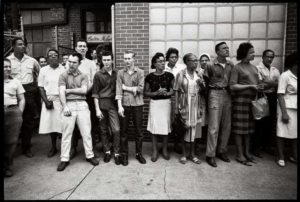
Exploring How Racism Structures Canadian Physical Therapy Programs: Counter-Stories From Racialized Students
The authors of this study conducted in-depth interviews with racialized students or recent graduates of Master’s-level physical therapy programs in Canada. The students described their experiences of white culture, and how well-meaning fellow students simply weren’t aware of the institutionalized racism around them. In compelling quotes, the students detail their feelings of frustration and resignation based on repeated exposure to race-related stereotypes.
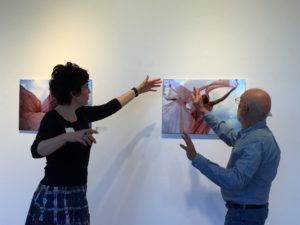
Agency Restored, Dignity Preserved: Lessons Learned as an Art Historian About Enhancing Quality of Life for People With Dementia
“What started as a narrowly-focused mission to welcome people with dementia … into our museum for the first time evolved into a much broader and more profound project: to reinvent what agency within the museum would look and feel like for visitors living with dementia,” author Susan Shifrin notes in this compelling piece. She details her journey from that experience to founding ARTZ Philadelphia, a program that invites people with dementia to serve as mentors to program participants.

Profiles in Professionalism With Beth Skidmore
This installment of JHR’s interviews with industry innovators focuses on clinician, researcher, and educator Beth Skidmore, an award-winning Occupational Therapist whose gifts inspire a wide range of students. Beginning with her early days, detailing why she chose her field, to describing her current leadership roles, Dr. Skidmore offers a compelling picture of how professionalism develops and professionals reach enlightenment. “I think now professionalism means to me…grace and humility,” she notes.
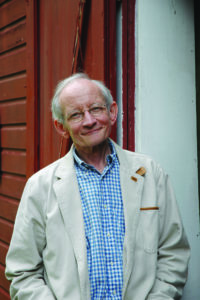
Poet in Profile – Ted Kooser
Interpreting poems written by renowned poet Ted Kooser in a Nebraskan winter in 1998, his friend Amy Haddad highlights the beauty of the human spirit when faced with life-threatening challenges. Kooser wrote the poems on his two-mile walks before dawn as he recovered from surgery, chemotherapy, and radiation for tongue and neck cancer in 1998. Compact and powerful, they show how one creative mind forged a bit of order in the “chaos” of recovery.

‘Making Strange’: Exploring the Development of Students’ Capacity in Epistemic Reflexivity
Engaging in epistemic reflexivity, or the ability to question the ways in which we practice, and their association with organizational and social structures, is the key to gaining a clear perspective on the profession, according to these authors. How can students take a step back, and gain true insight into their professional world? This study employed a 7-step framework to introduce learners to the process of “making strange.”
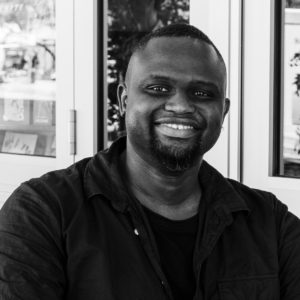
Gathering on the Wrong Side of the Road: Critical Race Scholarship Across the Health Humanities
In a compelling response to our article, “Exploring How Racism Structures Canadian Physical Therapy Programs,” Dr. Bryan Mukandi offers an account of his critique of early drafts of the article, requested by the authors. He notes that his fear at the time was that the article “was an inadvertent reiteration of the idea that the inclusion of people of color in health disciplines is a matter of charity rather than justice.” Dr. Mukandi expresses the hope that more colleagues like these can gather with those “on the wrong side of the road” to foster dialogue and spur change.

Harnessing the Power of Language for Healing
Spurred by her recollection of Amanda Gorman’s beautiful poem spoken on the steps of the Capitol building just days after a violent attack, Sarah Blanton, in her Spring 2021 Editorial, reflects on the power of words to harm or to heal. She encourages readers to consider the daily impact of their own words on those around them. She details how researchers, educators, and clinicians can more deeply engage with the humanities in order to better hear their own stories—thereby strengthening their individual power for healing with the spoken word.
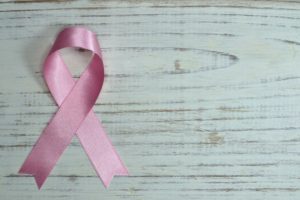
The Fragility of Life: Through Service I Live
In an honest case study from his residency year, Corey Nolte shows how “my narrow-minded understanding of the resiliency of the will to live was expanded.” As his terminally-ill cancer patient became more frail and less willing to accept treatment, they shared a tender, intimate moment of prayer. Nolte offered comfort through his patient’s final days. By carefully supporting end-of-life wishes, he notes, “we can help to unburden patient angst and give direction to our own moral compass.”
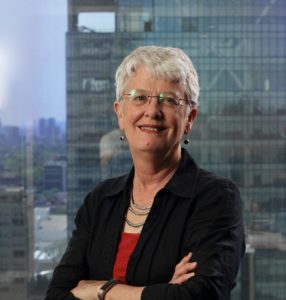
Climbing Back into the World
In her stark and direct poem, Kirsten Woodend details the “multitude of indignities” that someone “in the process of body repair” can suffer. She notes how a person in recovery becomes a child in others’ eyes, “incapable of coping mentally or physically.” The poem asks why these extra psychological burdens must be added to the healing process.
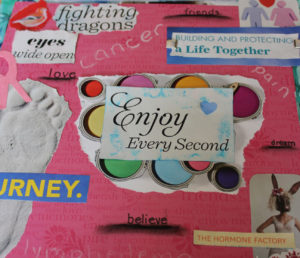
Fostering Hope and Coping While Living With Lymphedema: A Visual Narrative for Engaging Cancer Survivors and Caregivers
With compelling quotes from participants, and links to their groundbreaking video, these authors relate the fundamental impact of a series of workshops they developed to help cancer survivors live with lymphedema. The lymphedema video is “an accessible tool for patients, caregivers, students, and healthcare professionals,” they note. “We echo the participants’ hope that it will encourage dialogue between health professionals and patients.”
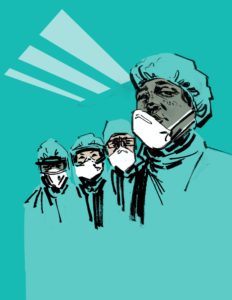
Patient Care During a Pandemic: The Significance of Humanism in Healthcare
How does a student cope with isolation during a forced four-month break from clinical rotations? Olivia Wolfe enrolled in an online course, Humanism in Health and Healthcare. Its impact inspired her to use her “voice and privilege to uplift and support essential causes fighting the twin pandemics of COVID-19 and racism.” She details her journey to a new commitment to humanism at home and in the clinic.
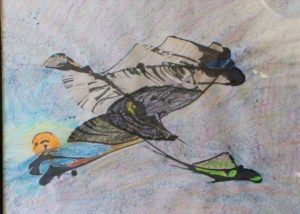
Art Informing Interdisciplinary Care for a Veteran Recovering from Traumatic Brain Injury: A Case Study
This poignant case study, featuring impressive art created by a military veteran with traumatic brain injury and comorbidities, expresses the power of Art Therapy to heal profound physical and psychological wounds. “The veteran’s art increased his self-awareness while informing the clinical team of his ongoing experience,” Gayla Elliott notes. His art and his words make a compelling case for adding art to the rehabilitation process.
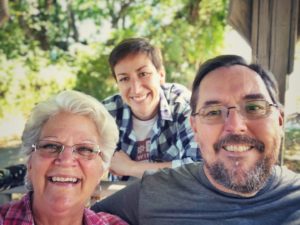
Empathy
In this artfully crafted poem, Jamie Fleshman makes a strong distinction between the shallow demands of sympathy and the far deeper mutual understanding that evolves from genuine empathy. She speaks authentically from her own experience, giving moving, useful instruction to those who want to come alongside.

Spring 2021 Resources
In this issue’s Resources page, Eric Holshouser offers a rich list of ways to cope with the isolation of the COVID landscape by spurring creative thought. Readers may find respite in The Art of Happiness by the Dalai Lama, or view an online webinar on Flourishing in an Era of Uncertainty. Holshouser also includes links to crucial current information—such as the groundbreaking, and important, video The Social Dilemma.
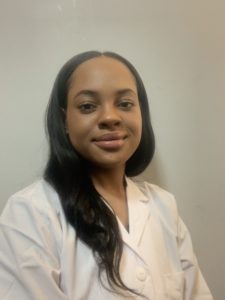
A Journey Toward Mindfulness
In “A Journey Toward Mindfulness,” Kelsey Robinson, SPT describes the steps she took to turn the effects of a crippling racist remark into a positive force for self-discovery. Rather than holding in her pain and self-doubt, she accepted an invitation to tell her story to young people. “In the process, I found my voice,” she notes. She encourages others to do the same. “Someone needs you,” she states. “The trials you face today will become your strength tomorrow as a clinician.”

